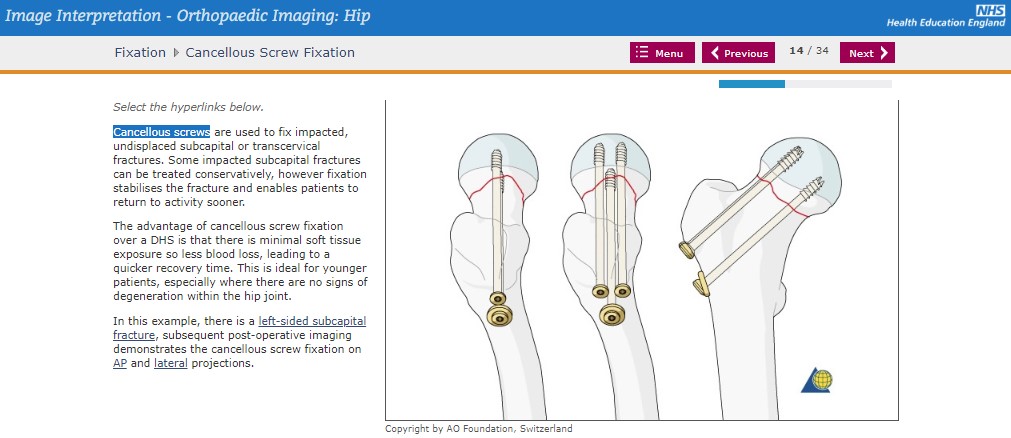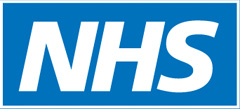The 10 new sessions reflect ever-evolving orthopaedic procedures and the increasingly complex imaging that radiographers are being asked to report on.
What’s included in the new sessions?
An introductory session explains the post-operative plan for patients who have undergone orthopaedic procedures and the importance of imaging to assess the interventions. It covers the process of loosening and infection, bony changes and their radiographic appearances. This session explores how a report should be worded and it also includes self-assessment exercises.
There are also nine anatomy sessions on the hip, knee, shoulder, elbow, foot and ankle, hand and wrist, long bones, pelvis and vertebral column, which all follow a similar format:
- An overview of the procedure
- Why it is carried out
- What it should look like
- What it looks like when it goes wrong
The sessions include revision exercises, radiographs and illustrations to show different types of fractures and fixation devices. Examples of pathology and complications take the learner through all aspects of the procedures.
The authors of the new sessions are all practising reporting and superintendent radiographers in the UK.
Developed by the College of Radiographers and NHS England e-Learning for Healthcare, the Image Interpretation programme is currently used in 15 countries. This reflects the high quality of the content and its engaging, interactive format.
Richard Bryant, Business Development Manager at eIntegrity, said: “Our e-learning is constantly updated and reviewed by leading clinical experts – and this is one of the key strengths. The content can be refreshed and expanded to reflect the latest clinical advances – which is a real benefit over textbook learning.
“Image Interpretation continues to be one of our most popular programmes – and it is now promoted by numerous prestigious professional bodies and medical colleges around the world.”
To find out more, go to our dedicated programme page.




